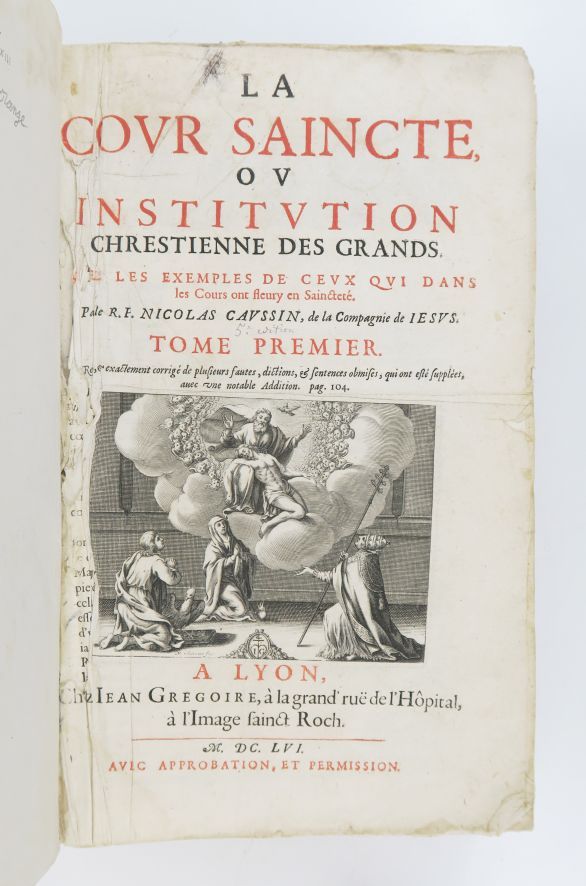Description
CAUSSIN (Nicolas). The Holy Court, or Christian Institution of the Great. By the examples of those who in the Courts have fleury in sanctity. Revised & exactly corrected of several faults, dictions, & sentences obmises, which were replaced, with a notable addition pag. 104. Lyon, Jean Grégoire, 1656-1668. 5 volumes in one in-4, text on two columns, half tan basane with corners, spine ribbed with gilt fillets, title page (later binding). A cracked spine, some corners missing, paper missing from the first title and the introductory pages. The composition of the numerous editions of this classic of intramundane spirituality, originally published in 1625, is of a rare complexity, as one can easily be convinced by reading Sommervogel's hesitant descriptions. Father Nicolas Caussin (1583-1651), who in 1637 became confessor to Louis XIII, to the Duke of Enghien in 1643, and to part of high society before the Fronde, shows himself to be in the spirit of his Order, which had always favoured the Christian formation of the elite. (Backer & Sommervogel II, 906-910.)
1246
CAUSSIN (Nicolas). The Holy Court, or Christian Institution of the Great. By the examples of those who in the Courts have fleury in sanctity. Revised & exactly corrected of several faults, dictions, & sentences obmises, which were replaced, with a notable addition pag. 104. Lyon, Jean Grégoire, 1656-1668. 5 volumes in one in-4, text on two columns, half tan basane with corners, spine ribbed with gilt fillets, title page (later binding). A cracked spine, some corners missing, paper missing from the first title and the introductory pages. The composition of the numerous editions of this classic of intramundane spirituality, originally published in 1625, is of a rare complexity, as one can easily be convinced by reading Sommervogel's hesitant descriptions. Father Nicolas Caussin (1583-1651), who in 1637 became confessor to Louis XIII, to the Duke of Enghien in 1643, and to part of high society before the Fronde, shows himself to be in the spirit of his Order, which had always favoured the Christian formation of the elite. (Backer & Sommervogel II, 906-910.)
